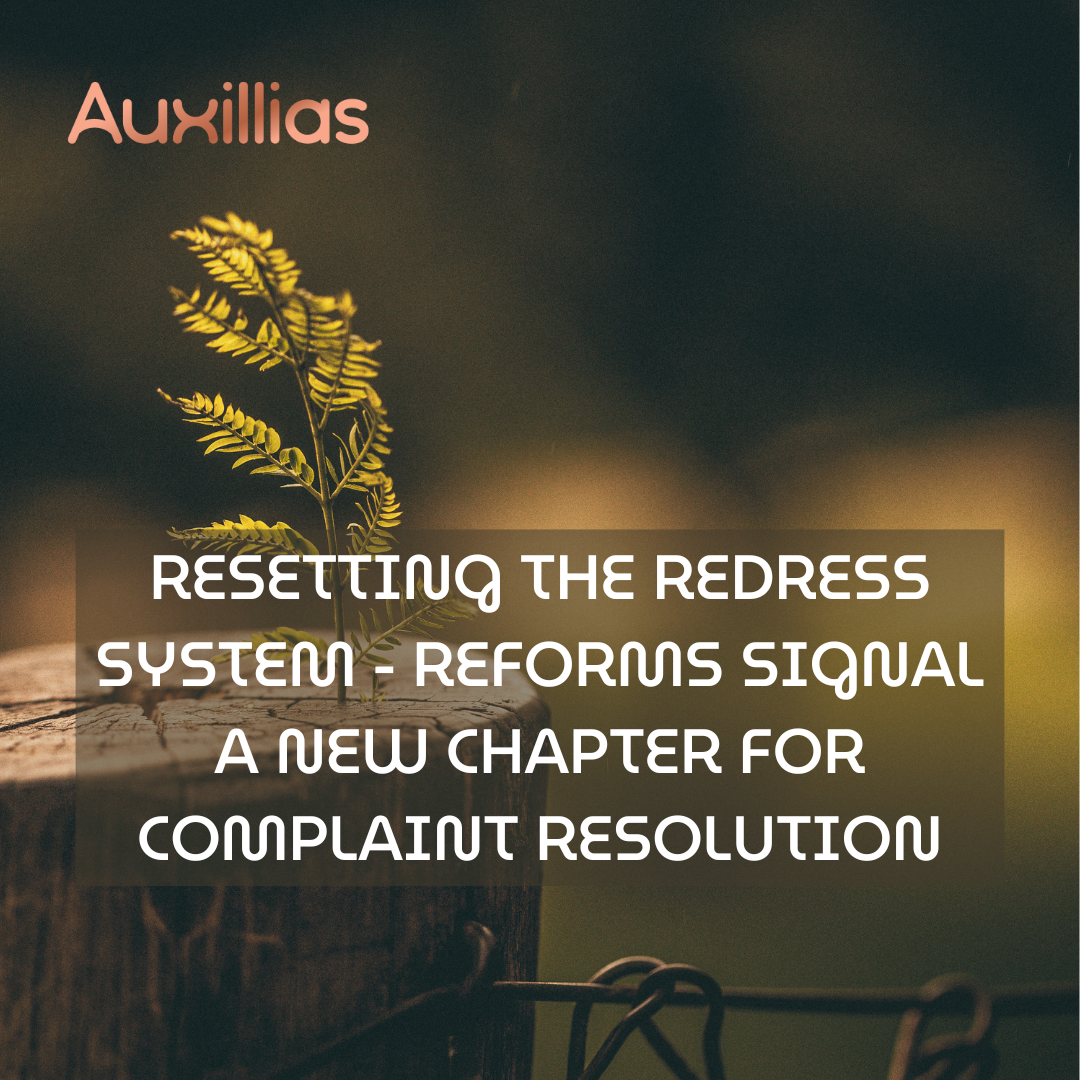Resetting the redress system: how FCA, FOS and HMT reforms signal a new chapter for complaint resolution
July 2025 has brought the most significant set of proposed changes to the UK’s financial redress system in over a decade. Through two major consultation papers - HM Treasury’s Review of the Financial Ombudsman Service (FOS) and the FCA and FOS joint CP25/22: Modernising the Redress System - the regulatory landscape is shifting decisively toward clarity, consistency and confidence.
These reforms are part of a broader deregulatory agenda outlined by Chancellor Rachel Reeves in her Mansion House speech on 15 July. In that address, she described aspects of the post-crisis regulatory regime as a “boot on the neck” of enterprise and innovation. The speech set the tone for what is now being referred to as the “Leeds Reforms”, a package of measures intended to ensure financial services regulation supports growth, rather than constraining it.
For firms dealing with complex complaint-handling challenges, particularly in high-volume or high-risk areas such as motor finance, this reset offers both reassurance and important indicators of what lies ahead.
Summary of key proposals
Reframing the FOS role - the government proposes restoring the FOS to its original purpose as a simple, impartial dispute resolution service. This includes adapting the “fair and reasonable” test to align with FCA rules. Where firms have complied with FCA standards, the FOS will be expected to conclude that they acted fairly.
Regulatory consistency and referrals to FCA - a new statutory referral process would allow the FOS – and, in some cases, parties to a complaint – to seek FCA input on the interpretation of relevant rules. This is designed to avoid inconsistency and ensure complaints with wider implications are handled coherently.
Mass Redress Events (MREs) - a structured framework is proposed for identifying and managing large-scale complaints. The FCA will have the ability to pause complaint handling during significant events and may introduce faster, market-wide remedies. The framework sets out six criteria to help identify potential MREs, such as systemic failings, consumer impact and financial exposure.
10-year time limit for FOS complaints - a proposed longstop would prevent complaints from being brought to the FOS more than 10 years after the relevant act or omission, subject to limited exceptions. This is likely to be welcomed by firms still dealing with long-running historic exposure.
New ‘lead complaint’ and registration process - the FOS plans to introduce a lead complaint process to assess novel or high-impact issues using representative cases. In parallel, a registration stage will be introduced to filter out incomplete or inappropriate complaints before they move into full investigation, potentially reducing costs and delays.
Modernising redress calculations - the traditional 8% simple interest rate may be replaced by a formula based on the Bank of England base rate plus 1%, helping ensure redress more accurately reflects economic loss.
Operational improvements and lessons learned - proposals include granting the Chief Ombudsman clearer authority to delegate decisions and publishing quarterly “lessons learned” updates to drive transparency and consistency across cases.
Implications for motor finance and DCA complaints
While the motor finance sector continues to await the outcome of the Supreme Court’s ruling on discretionary commission arrangements (DCAs), the relevance of these proposals is already clear:
Greater alignment between FOS and FCA standards could reduce the risk of unpredictable redress outcomes, particularly in DCA complaints where firms have followed evolving guidance.
The mass redress event framework offers a new way to coordinate large-scale issues involving multiple firms and consumers. It could shape how the FCA responds to future redress challenges in the sector, whether through individual complaints or a Section 404 scheme.
The proposed time limits give firms increased certainty when assessing exposure on older agreements. Defining the back-book window is essential for financial planning and risk management.
The lead complaint model and registration stage may reduce the cost and burden of handling large volumes of poorly evidenced complaints, particularly those driven by CMCs.
Redress interest reform could lead to lower overall payout values in some cases and offer a more balanced methodology for assessing compensation.
Reviewing DISP alignment is now critical. Firms should take this opportunity to revisit how their complaint-handling frameworks align with DISP, especially where previous decisions relied on discretionary interpretation or lacked consistent root cause analysis.
The bigger picture: regulation for growth
The Chancellor made it clear in her Mansion House speech that redress reform is part of a broader push to support investment and unlock productivity. Rather than relying on caution and regulatory overreach, the focus is shifting towards proportionate, principles-based oversight that encourages responsible innovation.
For firms involved in motor finance complaints or operating in other high-risk segments, this isn’t just a compliance update. It’s an opportunity to realign complaint-handling strategies and governance to reflect a more coherent, consistent and forward-looking regulatory landscape.
What now?
Both consultations are open until 8 October 2025. Final outcomes will depend on engagement across the industry. At Auxillias, we are reviewing the proposals in detail and working with clients, legal partners and trade bodies to help shape responses and prepare for implementation.
We also encourage firms to begin reviewing their DISP governance and complaint documentation practices, ensuring that both current and historic decisions can be clearly aligned with FCA expectations.
If you would like to discuss the implications of these reforms for your organisation - particularly in the context of motor finance complaints, MRE risk or DISP readiness - please get in touch with Jo Davis or Dan Richards.

